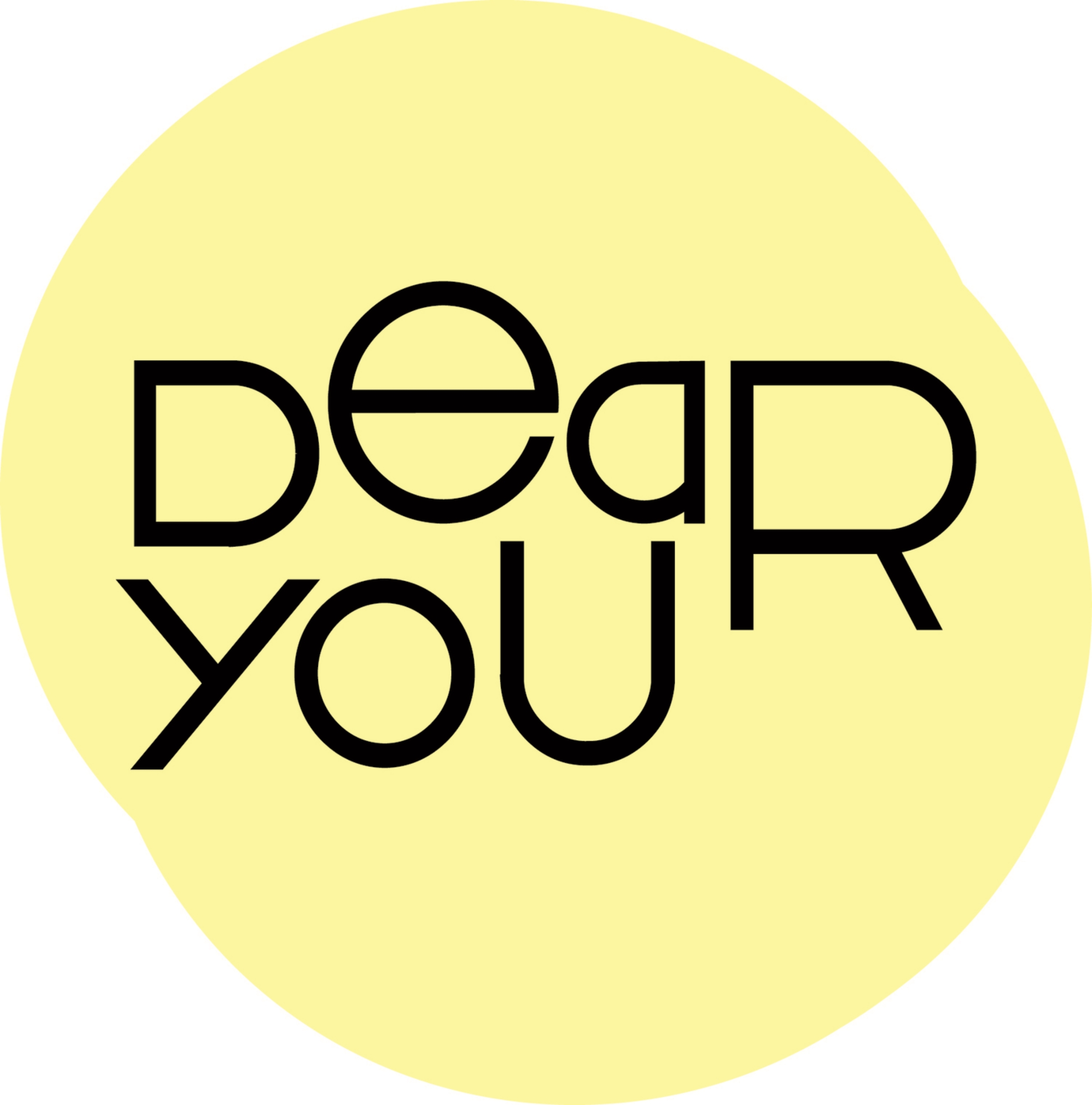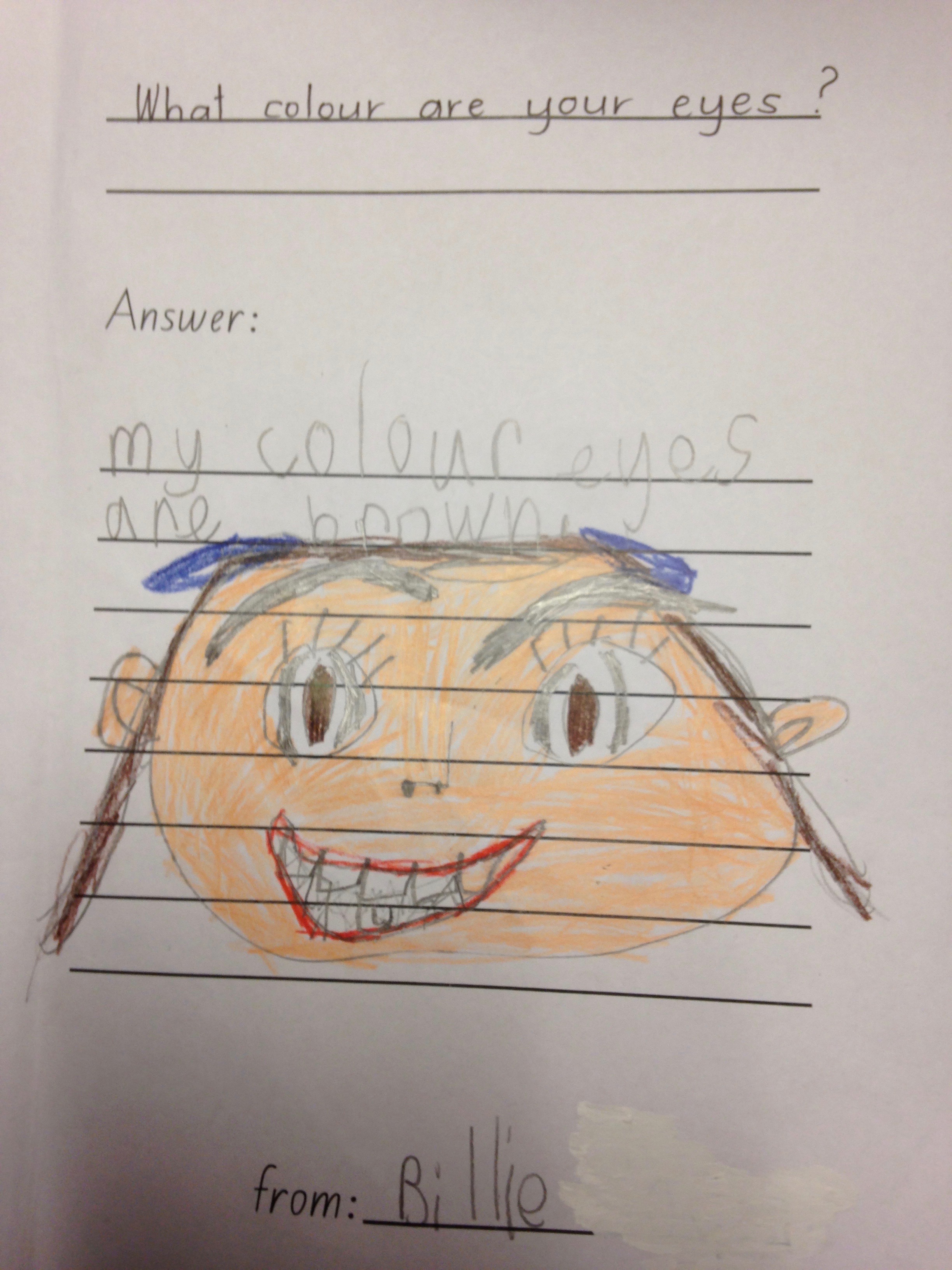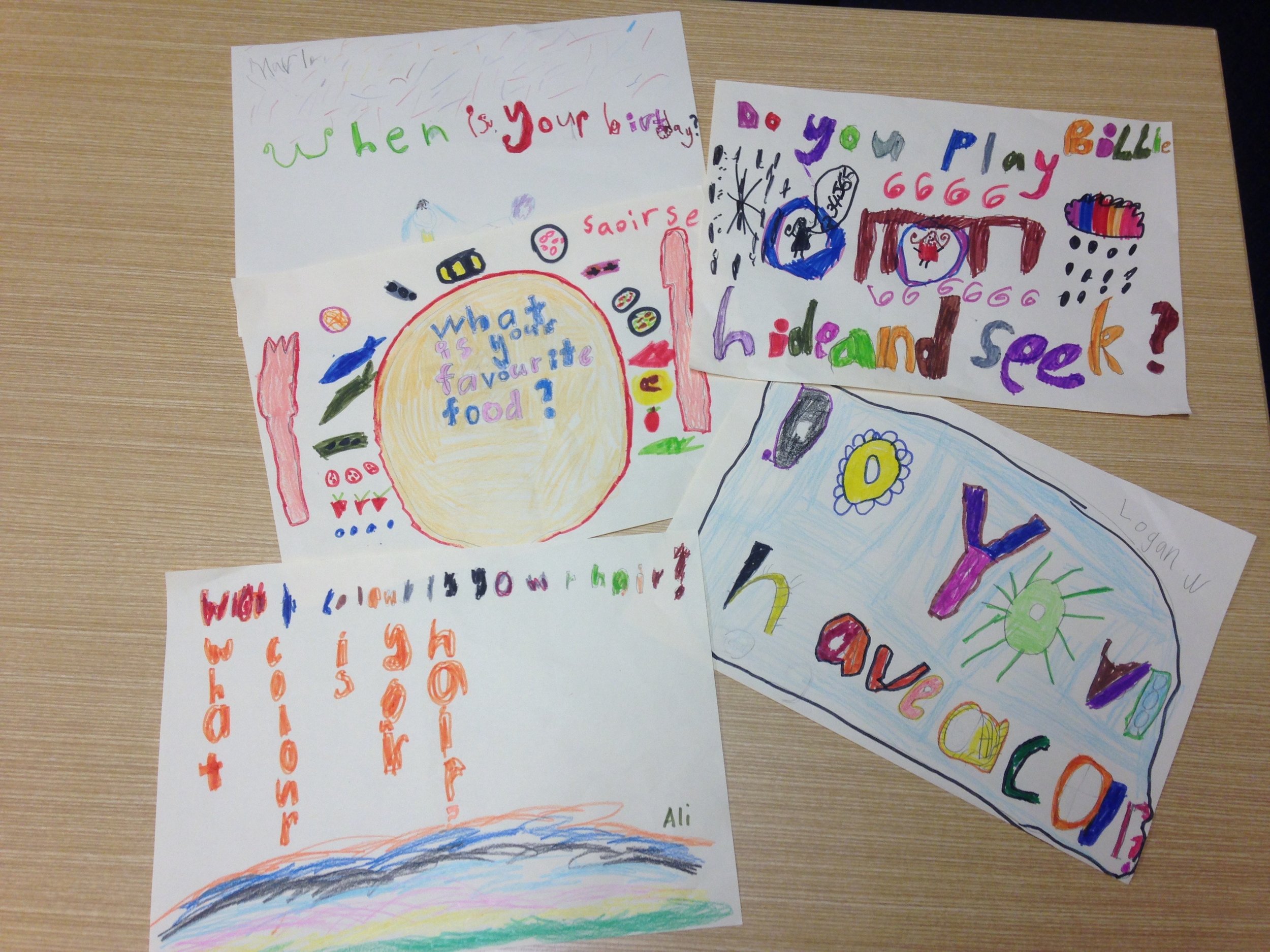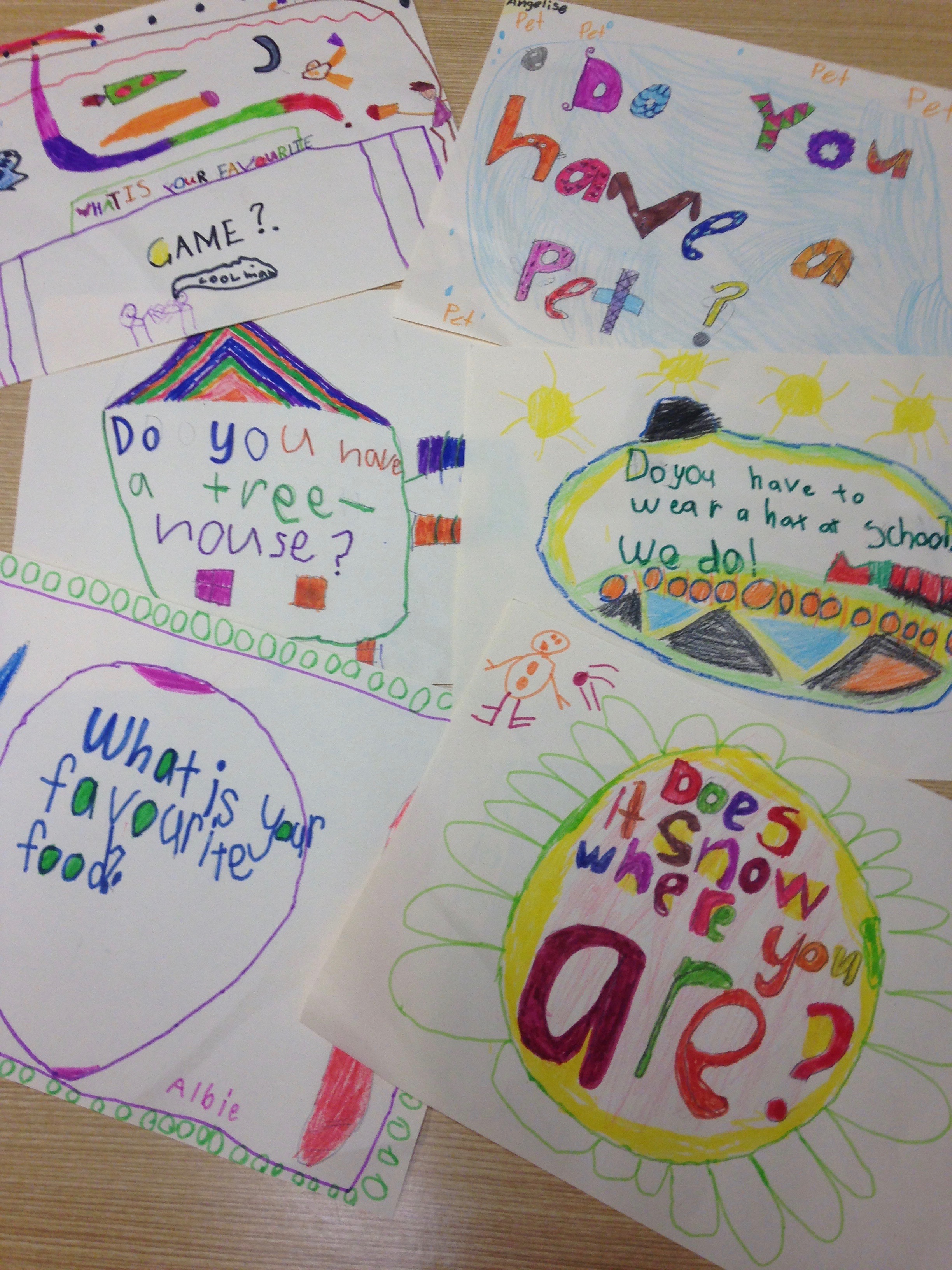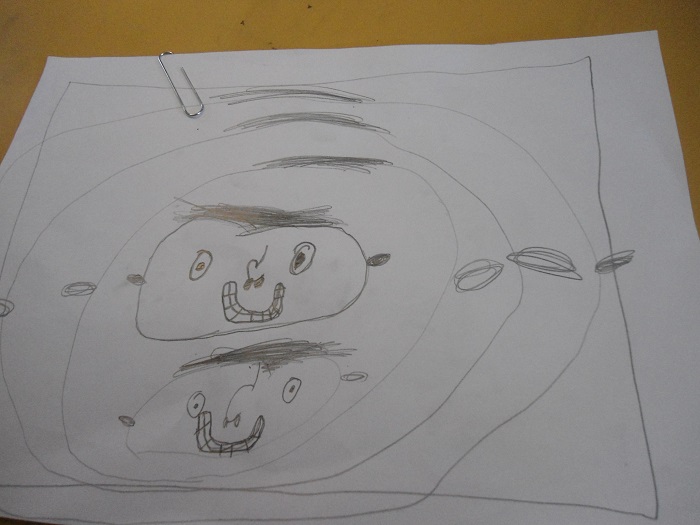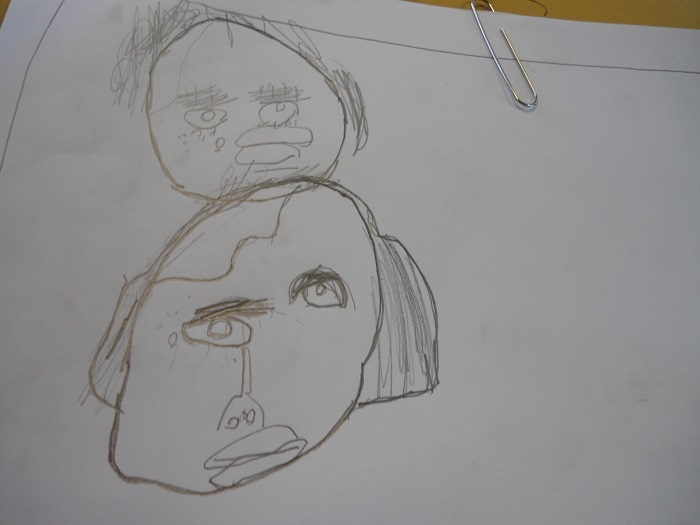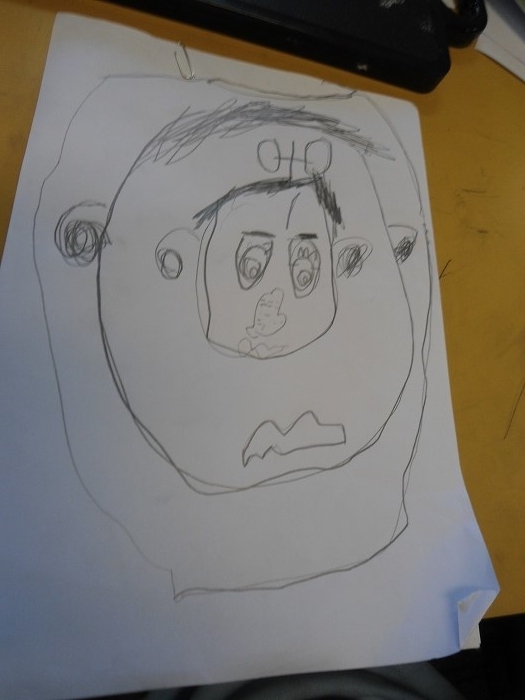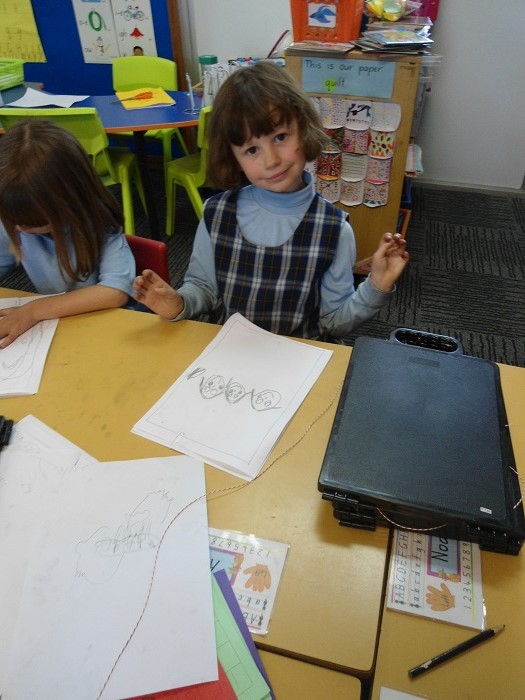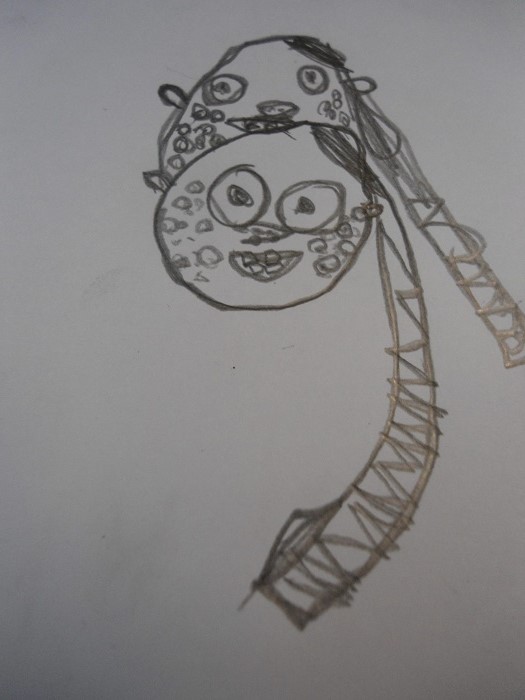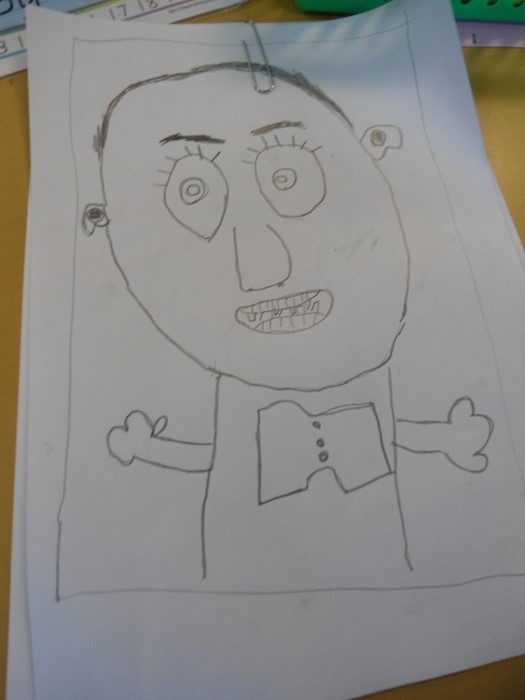Some of the kids were able to concentrate on this for a bit - many of them found it challenging to keep their eyes closed and focused, perhaps because of the proximity of all their friends - but at any rate it offered an alternative way of "seeing" the world through touch.
For the second activity, I had found some double mirrors from the university - our visual arts students use them for a self-portraiture activity in first year. They are on a hinge, I think these mirrors are designed for hairdressing apprentices originally.
So I asked them to do a 'double self portrait'. There were a few tricky things about this - the mirrors were standing up at 90 degrees on the desk, and so their reflective surface was a bit low for them to see their own faces. So Barbara got them to take away their chairs and kneel down on the floor so they could actually see their own faces.
The other tricky bit was just how to do a double self portrait. I didn't give them a demonstration - partly because I wanted to see what they would come up with - but in retrospect it might have been good to do so. There are some basic things about drawing your own face in a mirror which would have been worth pointing out - like observing specific things about the visual characteristics of one's own face, rather than just taking for granted that we all have two eyes, a nose and a mouth. You know, the usual "draw what you see, not what you think you see".
So I reckon if we were to do something like this again, I'd focus more on the actual mechanics/principles of observational drawing, so we would generate more specific, less generic, faces.
However, some of the kids did do some really interesting double self portraits, strange doublings, where two faces sit side by side, or one next to the other, or one slightly at different scale but otherwise almost identical.
We then got them to do their transfer print, using their double self portrait. This was a process involving a normal pencil - so that a harder tip could push the image through the 2 layers of paper onto the sheet that was receiving the image.
The transfer prints came through successfully, a bit faint perhaps, but it worked. They have a nice low-fi feel to them I think.
Barbara had photocopied lines onto the back of the paper, so the students then wrote a letter to the Monkeys in Finland - they enjoyed this process - for some reason a lot of them want to write "Kind Regards" at the end of their letters - very formal!
After the class, Barbara and I (together with a couple of young artists) experimented a bit with using crayon or pastel rather than 6B pencil as our transfer medium. This has advantages, as its much faster to cover the surface of the transfer paper with crayon, and the image transfers much more darkly to the final print. I reckon if we were to do this activity again, that's what we'd change.
I think Barbara was going to post them to you in the day or so after the activity - so with any luck the Monkeys will receive our parcel soon!
All the best,
Lucas
The K1HT class from Bulli Public School in Bulli, Australia are making and sharing art with the Monkeys from Your School in Espoo, Finland. Both groups are 5-6 year old artists.
